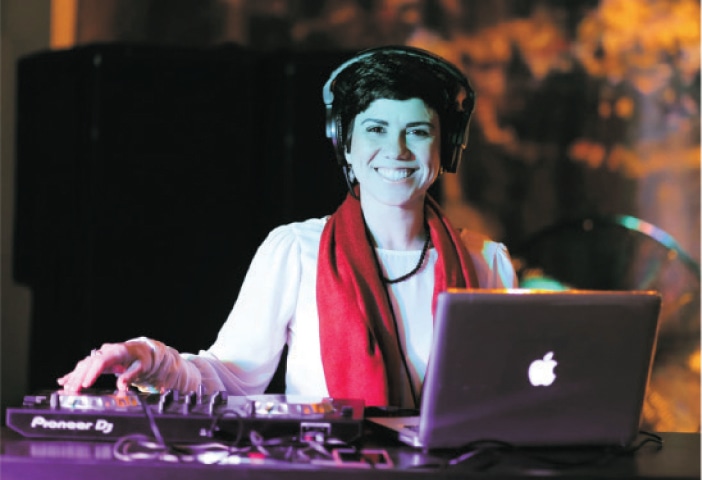
Tamara Maravilha grew up surrounded by music. Now 30, the physiologist by profession has performed in Europe and Latin America, and made her debut in Asia by performing in Pakistan. Dawn caught up with Ms Maravilha in Islamabad to talk to her about her experience as a DJ.
Q. Brazil has a vast multi-ethnic and multicultural society. How do you cater to such a wide audience?
A. If you look from outside, yes, there is African, Latin, European and even Japanese influence in Brazilian culture, be it music, food or behaviour, but for a Brazilian it’s all one and that is how we have been brought up. So we do not separate these influences from Brazilian culture but consider them part of it.
I grew up listening to music of all genres so it is easy for me to mix them as per my audience’s demand. I am part and parcel of this multi-ethnic, cultural society.
I feel happy that these dialects have a far-reaching affect in countries like Portugal and Spain and others; it’s always nice to mix all in one.
Q. How long have you been DJ-ing?
A. I was born in Brasilia but my parents are from a countryside town called Bahia in north of Brazil. I have been brought up in the city but my father’s roots are very strong and I always felt connected. He is a part-time DJ for a local radio and records his show now and then. So music is in my DNA.
I still remember as a child, my father used to collect records and CDs of all kinds and we used to listen to them as a family; he still does. Fortunately he too was not hooked to one kind of music so I grew up listening to samba, rock, jazz and others.
Q. Did you study music?
A. You will be surprised when I will tell you that I am a professional physiologist and I have a university degree in this discipline. I have also studied theatre from the University in Brazil.
I work at one of the centres in Brasilia from nine to five on weekdays and take up DJ offers on weekends. It becomes difficult sometimes to manage my timings as DJ parties last late [into the] night and getting back to my work becomes tedious. Plus I have to study regularly for my cases at the centre.
Q. What kind of music do you personally like and play the most?
A. Music is the bedrock of Brazil and genres like sambaare tantamount to Brazilian culture, so that tops my list. Apart from samba, which originates mainly from Africa, I like forro,which is from the native side. It is very popular during summer parties and focuses on songs about women and love.
Axe is carnival music and carnivals in Brazil are big events. It has roots in Caribbean, African as well as Brazilian music… so people love it. Last but not least bossa nova is another of my favourites. It’s a combination of drums, piano and acoustic bass with classical guitar. It is very trendy.
Having said that, I would like to discover Sufi, folk and Arabic music. This is the first time that I am visiting an Asian country and hopefully will get an opportunity to hear more Pakistani music while I am here.
Q. How important is music to Brazilians?
A. Brazilians considers music a part of their soul. The best thing that has happened to Brazilian music is that it has transformed with time, catching up to modern music. It has travelled from one side of the country to another.
For example, samba has gone through a big transformation. 100 years ago, it was considered the music of slaves and African religion. Similarly choro is an instrumental genre of music from the 19th century [that is] very much in demand.
Published in Dawn, September 26th, 2019































